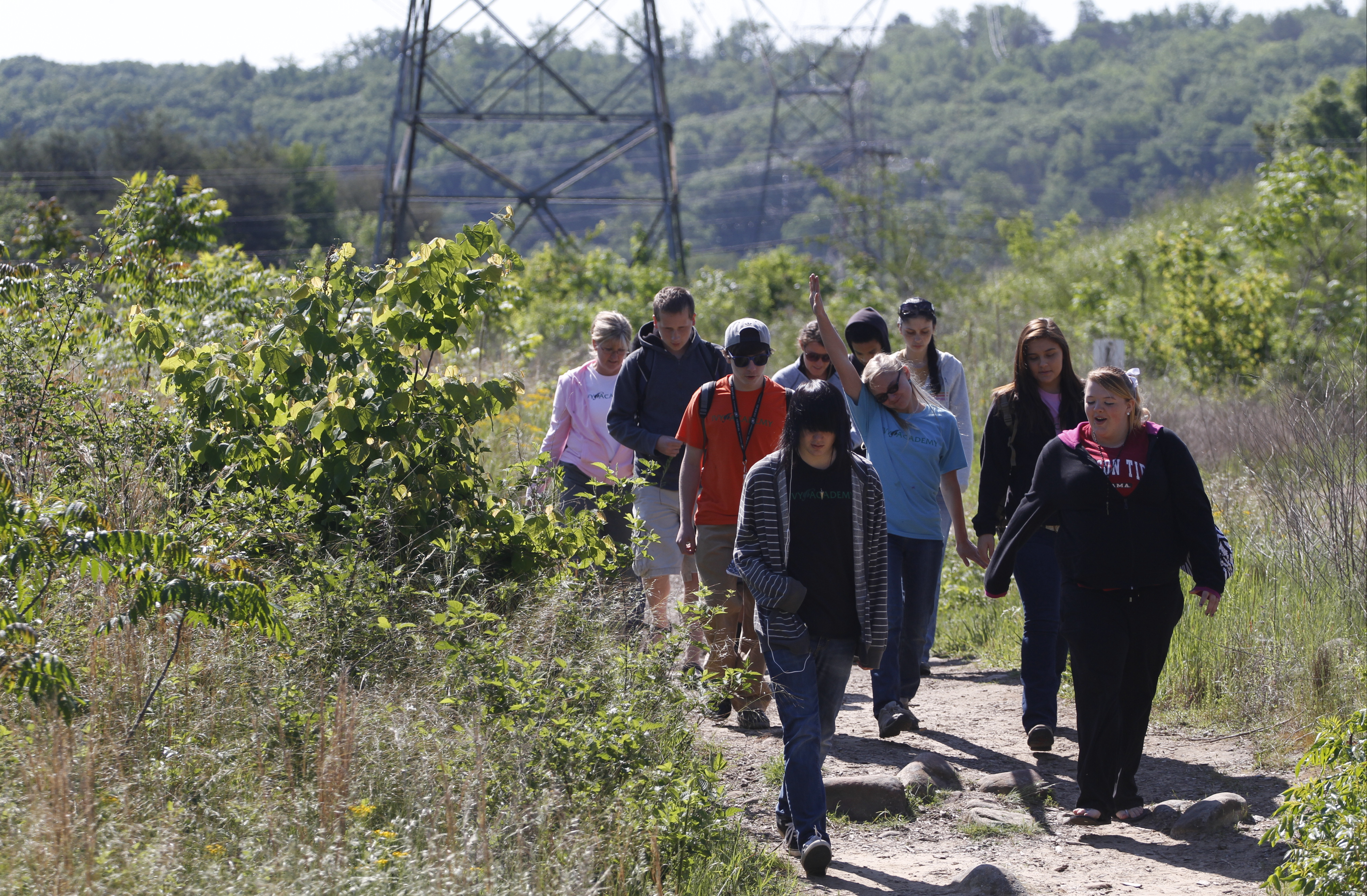Hamilton County charter schools reach milestone
Friday, January 1, 1904
VIDEO
This story is featured in today's TimesFreePress newscast.
There's a disclaimer that students get before signing up for Ivy Academy: You're going to get hot. You're going to get cold. Your socks will get wet. And you're going to get tired. That's because students and staff at Ivy spend much of their days outdoors, trekking through the woods, studying trees, creeks and animal life up close.
Here, the school's environmental focus is more than just a theme. Forest clearings serve as classrooms, stumps and stones replace desks and trails get as much traffic as hallways.
And after four years Ivy and the Chattanooga Girls Leadership Academy have reached one of their biggest milestones yet: their first batch of graduating seniors. Together, the 27 graduating students at Ivy and the 13 graduating from CGLA make up Hamilton County's first graduates of charter schools.
Charters were and remain a favorite of education reformers. From Louisiana to Washington, D.C., whole cities and states have looked to charters to fix what some call a broken American public education system.
Advocates touted the benefits of competition through choice and argued that tuition-free public charter schools were able to cut through bureaucratic red tape and focus on underserved students.
Opponents viewed the new wave of charters as an assault on public education and an attempt to privatize schools.
While some reformers saw charters as a silver bullet to revolutionize educational outcomes, directors of both schools here see their role simply as uplifting the small group of students they serve.
"What drew me was the education piece of helping at-risk students and thinking that a turnaround is possible," said Elaine Swafford, director of CGLA, which serves mostly high-poverty girls in grades six through 12. "So let's give the children of Hamilton County another shot."
Both schools have survived leadership changes and sought to educate the public about charter education. They've also seen students come and go. While each school is growing overall, both graduating classes are about half the size of four years ago because some students transferred back to their home schools.
The school board denied Ivy's charter application several times and only approved it after several rounds of appeals in 2007 and 2008. The school opened in 2010.
Executive Director Angie Markum said the public first viewed charters here as reform or alternative schools: a place for bad kids, or special-needs students.
And some among education's old guard saw them that way, too. Markum says some principals and social service agencies would nudge problem cases to Ivy.
Originally, charters here could only accept students from schools that were deemed failing, from low-income families or students who failed state assessments themselves. That's the graduating class. But charter enrollment since has expanded and any student now is eligible to enroll.
That dichotomy has played a part in the formation of two groups of students at Ivy.
In the one are those who love the outdoors, relish the chance to spend long hours in the woods and want to grow up to be geologists and scientists.
The other is students who wound up at Ivy because for whatever reason they didn't want to go to their home high schools of Red Bank, Soddy-Daisy or Howard.
Markum said the school can offer both groups something nontraditional. Small class sizes. Personalized attention. And a learning experience that isn't based on sitting at a desk for hours at a time.
"We can see the school changing," Markum said. "The community is learning what we're about. We're not a reform school. We're a school that wants to educate the whole student."
Charters receive the same per-pupil allotment -- about $7,200 -- that Hamilton County public schools get from the state and county. With it, they must run their own bus programs, lunch programs and buy or lease their own facilities.
Money is tight, but Ivy teacher Jim Watson said freedom from administrators has allowed the school to be flexible. He can quickly plan field trips or even long overnight outings.
"Charters basically run their own show," he said. "I knew we were going to be outside and offer a lot of opportunities for field activities. But come to find out the biggest benefit is there's no central office."
Watson says he sees the school's role as providing another way to reach students who might get lost in traditional schools.
"We're not really fixing the school district," he said. "But we're plugging up the holes for some of these kids who would normally fall through the cracks."
Senior Beverly Bardin said she could have been one of those who disappeared in the background. A quiet student, she didn't like the bigger classes at the magnet school Center for Creative Arts. At Ivy, she knows the teachers and other students well and finds herself engaging more in classes.
"It feels like I'm at summer camp," she said.
Senior Trent Walker came to Ivy because he didn't want to go to Lookout Valley High School. He's always liked science, and the school seemed like a good fit.
"I was not being challenged," he said of his middle school.
After four years of outdoors education, Walker is planning to study marine science at Coastal Carolina University next year.
Walker said people first perceived Ivy as a school for educational misfits. But he says his score of 28 on the ACT proves otherwise.
"If I was uneducated like they think we are, then I wouldn't have made that," he said.
Contact staff writer Kevin Hardy at khardy@timesfreepress.com or 423-757-6249.

